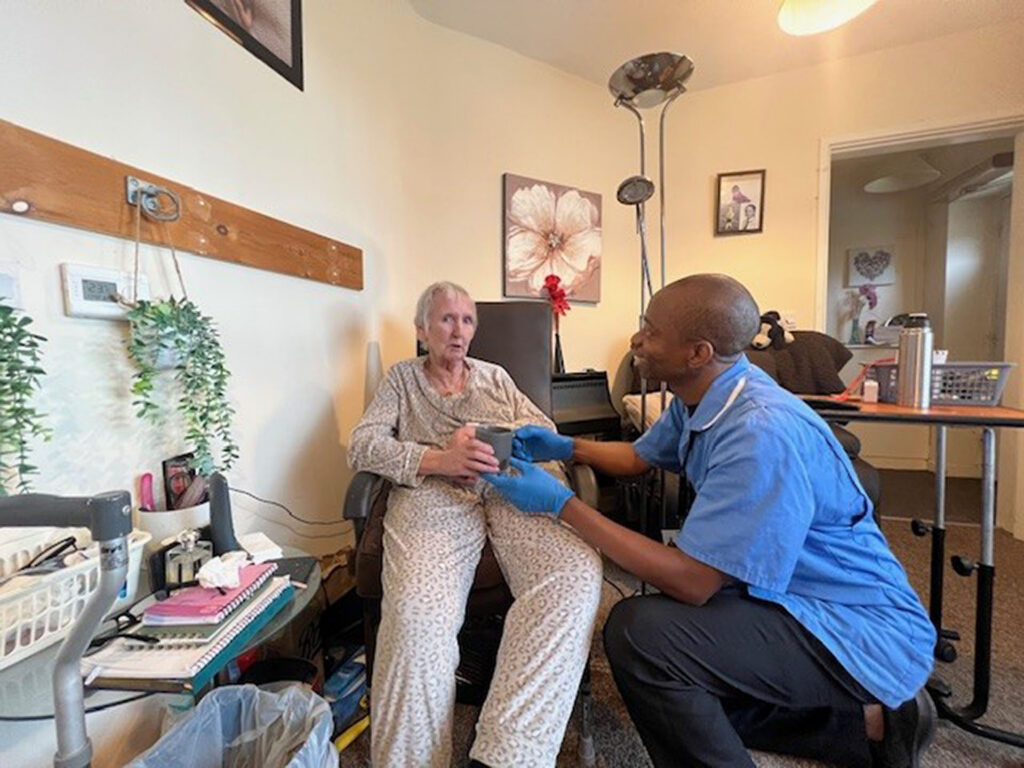Who typically needs long term support
Older People
Ageing Population: As people age, they may experience physical or cognitive decline, making it challenging to manage daily tasks independently
Post-Hospitalisation
After significant medical events like strokes or surgeries, people may require long-term care during their recovery period. Shorter term recovery support may be met with our Home from Hospital (HFH)service
People with Long-Term Health Conditions
Chronic illnesses such as multiple sclerosis or severe arthritis can impair a person’s ability to perform daily tasks, necessitating long-term care.
Physical Disabilities
People with physical impairments may require assistance with mobility, personal care, and other daily activities.
Learning Disabilities
People with a learning disability often need support to live independently and become active citizens in community life.
Dementia and Alzheimer’s
Cognitive impairments can lead to difficulties in managing daily life, increasing the need for specialised long-term care services.




